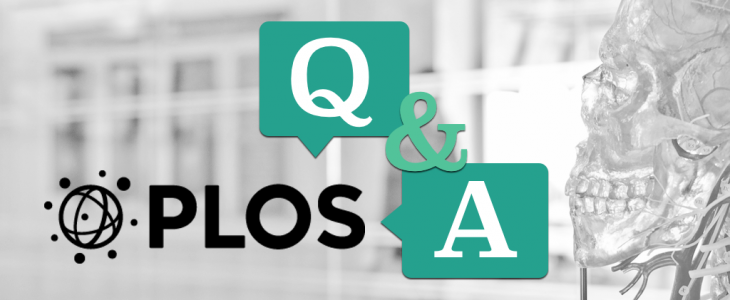
In the lead up to the ELPUB conference, we are shining a spotlight on some of our key Conference Partners. In this post, we share a Question and Answer interview with PLOS, the Public Library of Science.
Please tell us a bit about your organization. Who are you, and what do you do?
PLOS (Public Library of Science) is a nonprofit Open Access publisher, innovator and advocacy organization dedicated to accelerating progress in science and medicine by leading a transformation in research communication. PLOS’ publishing suite includes seven peer-reviewed journals including PLOS ONE, PLOS Biology, PLOS Medicine, PLOS Computational Biology, PLOS Genetics, PLOS Neglected Tropical Diseases and PLOS Pathogens as well as an innovative community of Channels and Collections. Our program encompasses authors from over 190 countries, more than 7,000 editors and a global pool of 74,000 reviewers—together we have worked to publish more than 216,000 articles to date. PLOS journals fully comply with Open Access mandates from funders, institutions and policymakers; upon publication, all articles are immediately deposited in PubMed Central.
PLOS believes that scientific ideas and discoveries are a public good and supports Open Access and Open Science to make scientific articles immediately and freely available to anyone, anywhere, for download, print, distribution and reuse without charge or other barriers, as long as the author is properly attributed. As a leading Open Access publisher, PLOS strives to implement policies and innovations that promote reproducibility, transparency and accountability. These priorities support Open Science in establishing a culture of open data, open peer review and clear recognition of all contributions to scientific research outcomes, which in turn provide essential context for scientists to thrive.
I’m Louise Page, Chief Innovation Officer at PLOS, where I am responsible for actualizing PLOS’ strategy in Open Science to maximize the influence, impact, and dissemination of research globally. I help PLOS look for ways to use emerging technology and new ideas to open up scientific communication—to make it faster, more efficient, more connected and more useful. Our ongoing innovations are focused to benefit authors, reviewers, editors, funders and ultimately the broader scholarly ecosystem.
What projects is your organization working on that you are excited about for 2018?
Most recently we just announced a partnership with Cold Spring Harbor Laboratory (CSHL) that enables the automatic posting of research articles submitted to PLOS journals on bioRxiv, CSHL’s preprint server for the life sciences. This collaboration between bioRxiv and PLOS empowers authors to share their work on a trusted platform before peer review, accelerating the pace of biomedical research. PLOS will perform initial manuscript screening compatible with bioRxiv standards, covering scope, plagiarism, and previous publication, as well as other basic ethical and technical criteria. Unless authors opt-out at the time they submit their manuscripts to us, their articles will then post automatically to the bioRxiv server without the need for additional actions by the author. By allowing their submission to be posted on bioRxiv, authors accelerate the dissemination of their work and invite commentary by a broader community, which the PLOS editors will evaluate as part of peer review. PLOS and CSHL will work collaboratively towards solutions for preprint licensing that enable broad dissemination and reuse; the addition of badges to papers which signal that additional services for authors have been performed by PLOS and potentially other organizations; submission and screening standards in the biomedical sciences; and the implementation of new forms of manuscript assessment to augment or improve current methods of peer review.
We also plan to implement our long-standing goal of a robust transparent peer review service, in consultation with our engaged community stakeholders and learning from those journals who have already made the process more open by publishing by underlying reviews. For many years, PLOS has published the name of the Academic Editor responsible for coordinating the peer review for any given published article and this year we will expand that program to provide a clearer view of what is now a fairly opaque process.
Another key goal we hope to realize this year is improving time to publication, particularly for PLOS ONE. Approximately ninety percent of our published articles are published in ONE, so improvements there will have broad impact and benefit to authors and readers. Alongside our partnership with bioRxiv to accelerate sharing of research, we have launched a range of activities to reduce decision and publication times. This includes an ambitious plan to reinvigorate and engage PLOS ONE’s Editorial Board, particularly in fields that are currently underserved and in newer fields for PLOS such as the physical sciences. We are also assessing the technologies we use to match papers to editors with the goal of expanding analytic capabilities to improve performance and ultimately reduce the time to first decision.
We are also excited that DORA, the Declaration on Research Assessment, received a boost of funding and energy to expand efforts on improving how scientific research is evaluated. Publishers, funders and societies all agree it’s time to shift from making declarations about the misuse of journal impact factors to finding solutions for better means of assessment.
Why is your organization supporting the ELPUB 2018 Conference?
We are honored to support ELPUB in its 22nd year. The rapid changes technology brings to the scholarly communication ecosystem makes this a timely conference to support. We’ve seen this within our own organization: PLOS ONE just this past year celebrated its 10th anniversary and as we look back we’ve been amazed at how this groundbreaking journal has shifted the publishing landscape. One of our community journals, PLOS Neglected Tropical Diseases, also celebrated its 10th anniversary not too long ago. This journal has been instrumental in supporting science and scientists globally in areas endemic for these diseases. The power of electronic publishing and dissemination of knowledge via the internet allows scientific research to happen anywhere and to reach everyone.
How does the theme of this year’s conference, Connecting the Knowledge Commons: From Projects to Sustainable Infrastructure, relate to your mission?
As a leading Open Access publisher, PLOS believes that scientific ideas and discoveries are a public good. However, their benefit will only be fully realized when scientists have effective means to rapidly communicate these ideas and discoveries to each other and to the broader public to generate discussion, reuse, and reproducibility. This may be our overarching guiding principle, but the reality of scientific data is that those interested often cannot find, access, or use the research data. The PLOS Data Policy, released in 2014, ensures authors make all data underlying the findings described in their manuscript fully available without restriction, with rare exceptions. To date we have published more than 80,000 articles with Data Availability Statements.
PLOS also has identified a set of established repositories which are recognized and trusted within their respective communities. We are also partnering with FAIRsharing which allows information on repositories to be standardized and collated in one easily-accessible location.
What is becoming increasingly clear is that these various programs to advance scientific communication must survive and thrive on a sustainable infrastructure. The growing number of research outputs makes it difficult to not only keep up to date with research advances but also to assess individual contributions. We, like others, believe interoperable open standards and digital identifiers are the answer. PLOS has been working within the community on a variety of levels to help build a foundation of infrastructure for maximum adoption of standards that support interoperability for CRediT, ORCID and more.
Technology is rapidly developing to enable interactions between entrepreneurs and established companies to create new products and to provide new services and platforms through open source communities, leading to innovative forms of collaborative solutions to further scholarly communication.
What do you think are some of the challenges in creating an inclusive ecosystem for sustainable research infrastructures?
We are all striving to be innovative and change agents, yet we are operating with technologies that are 20+ years old. To truly enable change, we need to match infrastructure with impact, concurrent with maintaining daily business operations. It is important for us to promote open source initiatives and establish interoperability via standards to make it easier for researchers to experiment and for new marketplaces to emerge. This must be balanced with the reality of busy researchers with limited tolerance for experimentation in publishing. As with established technologies, it will take time to develop a new technical infrastructure that will enable greater flexibility and modularity. The right steps are being taken now to establish a framework of collaboration, and through thoughtful planning and shared responsibility we will succeed in providing a modern infrastructure that will lay the foundation for future sustainability.
What discussions are you looking forward to participating in at ELPUB?
There is a growing concern in the scholarly community that crucial research communication functions and data management will be controlled by a small number of commercial players. The consolidation of vital tools and services may lead to unaffordable costs, limited access to research metrics, and a proliferation of big deal licenses. We are very interested in exploring how the Open Access community can enable new markets and provide new services to a diverse community that encompasses early career researchers to seasoned scientists working in a global arena. PLOS is committed to removing barriers to publication, and we look forward to continuing that conversation at ELPUB this year.
Are there any specific outcomes you would like to see coming out of ELPUB this year?
Forums such as ELPUB provide opportunities for interested parties to move beyond discussion, into a phase of action on infrastructure. We look forward to meeting potential new partners and the opportunity to work collaboratively together. In sharing stories of successful infrastructure and innovation projects, as well as key learnings from failed projects, we hope to come away from ELPUB more focused, cohesive and energized for the challenging work ahead.





